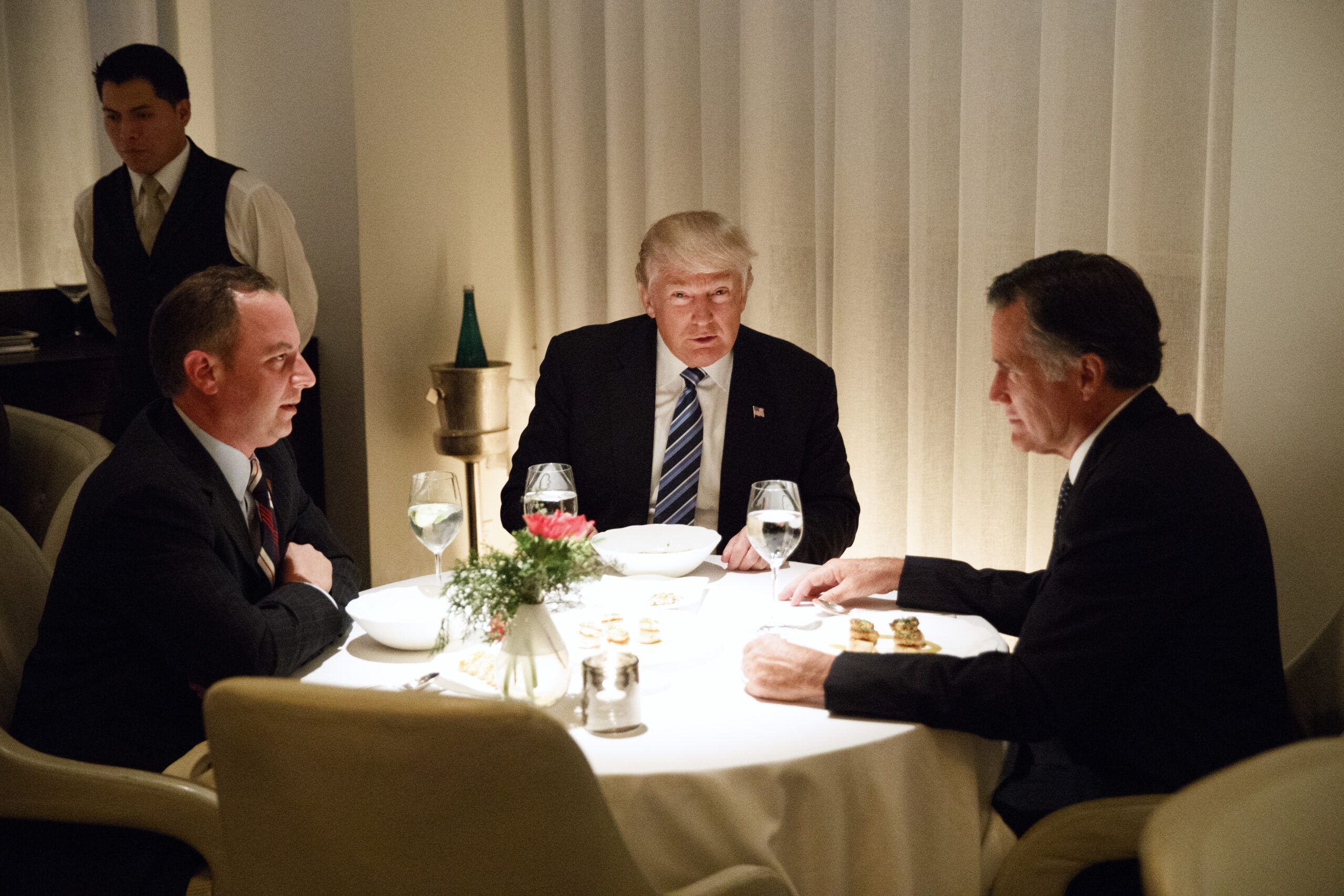A new New Yorker profile of Christopher Steele, the former British intelligence officer responsible for the infamous dossier, may reveal just how much Russia was involved in the inner workings of President-elect Donald Trump. Because when the world thought that Trump was playing with Romney in an act of ritual humiliation, the truth may have been that Russia, not Trump, made the final call on who would become secretary of state. Russia, according to Steele, wanted someone who would be more favorable to them on issues like the invasion of Ukraine.
Steele laid out his finding in a memo that based its conclusions off of a single source referred as “a senior Russian official”:
People were saying that the Kremlin had intervened to block Trump’s initial choice for Secretary of State, Mitt Romney. (During Romney’s run for the White House in 2012, he was notably hawkish on Russia, calling it the single greatest threat to the U.S.) The memo said that the Kremlin, through unspecified channels, had asked Trump to appoint someone who would be prepared to lift Ukraine-related sanctions, and who would coöperate on security issues of interest to Russia, such as the conflict in Syria. If what the source heard was true, then a foreign power was exercising pivotal influence over U.S. foreign policy—and an incoming President.
As fantastical as the memo sounds, subsequent events could be said to support it. In a humiliating public spectacle, Trump dangled the post before Romney until early December, then rejected him. There are plenty of domestic political reasons that Trump may have turned against Romney. Trump loyalists, for instance, noted Romney’s public opposition to Trump during the campaign. Roger Stone, the longtime Trump aide, has suggested that Trump was vengefully tormenting Romney, and had never seriously considered him. (Romney declined to comment. The White House said that he was never a first choice for the role and declined to comment about any communications that the Trump team may have had with Russia on the subject.) In any case, on December 13, 2016, Trump gave Rex Tillerson, the C.E.O. of ExxonMobil, the job. The choice was a surprise to most, and a happy one in Moscow, because Tillerson’s business ties with the Kremlin were long-standing and warm. (In 2011, he brokered a historic partnership between ExxonMobil and Rosneft.) After the election, Congress imposed additional sanctions on Russia, in retaliation for its interference, but Trump and Tillerson have resisted enacting them.
Tillerson’s close business ties with Russia were one reason why his selection to lead American diplomacy was a head-scratcher, and the fact that he didn’t have foreign policy or political experience didn’t help. Since taking office, he has done little to alleviate concerns about him. He’s left the State Department woefully understaffed, and according to a recent New York Times report, has not spent any of the $120 million allocated to his department since late 2016 to fight foreign attempts at meddling in our elections such as those perpetrated by Russia.
The allegations are coming, meanwhile, from Steele, who was described by The New Yorker as an unassuming, hard-working professional who was extraordinarily thorough and careful in compiling the dossier now associated with his name. It also noted that, despite Republican spin which cast Steele as a political ally of the Clinton machine, he first began looking into Trump when unrelated cases involving alleged FIFA bribes from the Russian government and an international gambling and money-laundering ring supposedly led by a Russian organized crime figure both led to Trump Tower.

